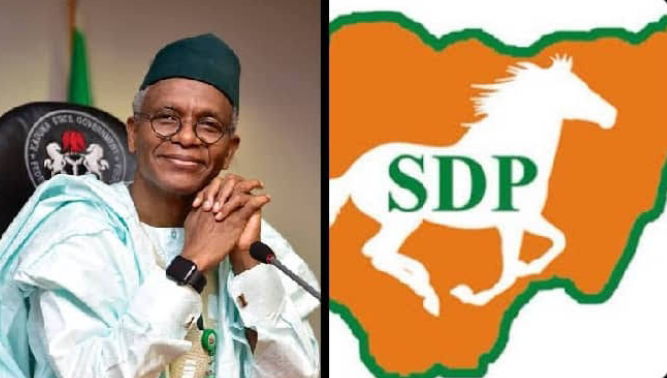Buhari’s parting gift to Tinubu: US$49 billion of extra debt…
Published on 2023 May 8, Monday Back to articles
As anticipated (Nigeria Politics & Security – 01.05.23), the National Assembly approved President Muhammadu Buhari’s request to convert ₦22,700 billion (US$49 billion) in Central Bank of Nigeria (CBN) overdrafts to bonds. The amount was amassed during Buhari’s eight years in office in an effort to make up for revenue shortfalls, despite the fact that government expenditure continued to rise annually. Since 2015 the amount owed by the Federal Government to the CBN has increased by over 3,000% from around ₦790 billion (US$1.7 billion) to the current ₦23,700 billion (US$51.4 billion).
With this latest approval, Nigeria’s debt has increased by at least 50% to ₦69,000 billion (US$150 billion) or roughly 40% of its gross domestic product (GDP). This brings the country near to the debt limit that the Buhari administration set for itself. This was set at 25% when Buhari came to power in 2015 before being increased to 40% in 2021 by the Debt Management Office (DMO) when it became apparent that Nigeria was on track to exceed the self-imposed limit. Now that it has been reached, president-elect Bola Ahmed Tinubu will need to increase it again to accommodate the new borrowing required to keep the government operating.
…but with questions about its legality
There are questions over the legitimacy of the CBN overdrafts. The law establishing the central bank restricts its ability to extend overdrafts to the government to no more than 5% of the previous year’s revenues. The Federal Government must repay the previous year’s advances before receiving new ones. Both the CBN and the Presidency have totally disregarded these legal restrictions.
It is unclear, however, whether the Senate’s approval of the latest request rectifies the illegality of the loans. The Senate committee that authorised Buhari’s request argued that: the economy would have collapsed without the loans; some of the CBN funds were loaned to cash-strapped state governments and the remainder were used to finance crucial projects. Some were also used to pay salaries and bridge monthly budget gaps. Both the finance ministry and the CBN generated these requests with the approval of President Buhari.
The reorganisation of central bank overdrafts became necessary because they were becoming too costly to be carried on the government’s books. The interest rate charged on the debt was equivalent to the CBN’s monetary policy rate — currently 18% — plus 3% so the 21% total interest rate made it the most expensive component of the government’s debt.
With the National Assembly’s consent, the loans are now being converted to a 40-year loan with a fixed interest rate of 9%. A three-year moratorium has also been granted during which the government will only pay the interest and not the principal sum. This halves the government’s central bank debt obligations and gives it breathing room to increase revenues before beginning to repay the loan’s principal sum. Furthermore, it assists the CBN in repairing its balance sheet because it can now account for the loan as an asset rather than a liability. It will also be categorised as a performing loan because the Federal Government cannot default on its obligations to the CBN.
The exposure of the CBN’s lending to the government is an entirely new scenario which has contributed to the economy’s deterioration. Since 2015 it has suffered from persistent double-digit inflation which has been attributed to the government’s extensive borrowing from the central bank over the past eight years.
Government spending has increased since 2015 by more than 500% while revenues have remained largely stagnant. Because the government is concerned about losing political support, it has: retained fuel subsidies; refused to substantially increase taxes; and — with oil production and prices struggling during the period — it has resorted to printing far more money than permitted to fund government operations. The Nigerian Naira has also lost at least 60% of its value since 2015.
In recent years, the government’s excessive borrowing has plunged it into a debt trap. Last year 99% of government revenues were used to service its debt. Even with this new restructuring of central bank debt and the additional borrowing anticipated this year, it will spend more on debt service costs than it earns this year.
Tinubu will inherit a literally empty Treasury from the Buhari administration. On 1 May, Edo State’s Governor Godwin Obaseki expressed his concern that the federal and state governments will be unable to pay salaries by June unless fuel subsidies are removed or additional money is printed.
Buhari is leaving his successor in a financially precarious position. Sadly, Tinubu will not be able to complain or even order an investigation into how these loans were spent lest he appear to be targeting Buhari. He will therefore have to find ways to navigate very challenging circumstances without throwing stones. Even though the situation he will inherit has made making certain difficult decisions inevitable, he may have to shoulder the responsibility for things that will go wrong in the coming months. He will have to bear the burden of Buhari’s parting gift of debt without overtly complaining or apportioning blame to his predecessor.
This excerpt is taken from our Nigeria Politics & Security weekly intelligence report. Click here to receive a free sample copy. Contact info@menas.co.uk for subscription details.


